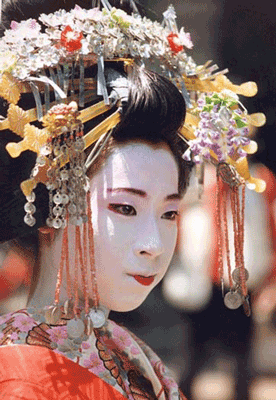Harmony is intricately woven into Japanese society and something that is important to have an understanding of when visiting Japan. While Japanese people are understandably forgiving when visitors to Japan are not fully aware of all Japanese social norms, it is still appreciated when you make an effort to act respectfully and appropriately. As part of our Know Before You Go series, we have compiled a list of tips on cultural norms and etiquette on Japan tours.

Meeting and Greeting
- Older generations generally greet with bows, rather than a handshake, though in some cases younger people may use handshakes as is done in many western countries.
- The common way to address people is by their last name, followed by the suffix “-san,” which is a more flexible version of Ms./Mr./Mrs. In non-formal situations, Japanese people may address you by your first name followed by “-san,” though it’s considered casual.
- When entering a Japanese house or a ryokan, remove your shoes at the doorway. Slippers are usually provided by the host. When entering a room with tatami floor, slippers are also removed. Wear only socks or bare feet on tatami floor.
- When in public, eye contact is generally avoided with strangers.
General Etiquette
- Punctuality is valued in Japanese culture (as you will be able to note by trains and buses always being exactly on time). Many Japanese will arrive a few minutes early or more, to ensure being on time, so it’s appreciated if you do, as well.
- In most cases, when eating noodles it is okay (and even proper) to slurp your noodles. This is done to maximize the flavor of the noodles as you eat them. It is not as easy as it looks to do it well, but your efforts will be rewarded (just be careful when it’s hot).
- Be careful not to place your chopsticks straight down into your dish (especially with rice) because this represents a ritual performed at funerals. You should also avoid pointing and crossing your chopsticks, since this is considered rude.
- A nice phrase to say just before eating is Itadakimasu, which means "I will humbly receive." You may also compliment food by saying Oishii, which means delicious.
- If you do not want anything more to drink, be sure to leave some liquid in your glass. An empty glass signifies you would like someone to serve you more.

Tipping
Be aware that there is no tipping in almost any circumstance in Japan. Whether taxi fare, dining, personal care, or anything else, no tip is expected. It can even be considered somewhat rude to do so.
There is one notable exception: if you stay in a nice ryokan, it may be considered polite to leave a tip to the proprietor at the end of your stay. If you choose to, make sure to place the money in an envelope and deliver it to them discreetly. If no envelope is available, it is acceptable to fold the money into some paper, so that the money is not showing.
Sightseeing
When visiting temples and shrines, you may be required to remove your shoes. Leave them at the entrance, or some temples provide plastic bags to take them with you. Photography is not allowed indoors at some temples, but it is usually permitted outside on the temple grounds.
Language
Japanese people are famous for over-appreciating even the slightest language ability, and knowing a few phrases can get you a long way here. Japanese people have all studied English in school, but many of them have not had the opportunity to actually speak it with a native English speaker. They can be very shy about speaking it with you, but they may understand more than they can speak, and even more so with written English. Here are a few common phrases that may be helpful during Japan tours:

- Good afternoon - Kon ni chi wa
- Good morning - O ha yo
- Good evening - Kon ban wa
- Please - O ne ga i shi mas
- Thank you - Do mo a ri ga tou
- I don’t understand - Wa ka ri ma sen
- Excuse me/I’m sorry - Su mi ma sen
- Right - mi gi
- Left - hi da ri
- Straight - ma su gu
- Train - den sha
- Bathroom - to i re
- Cheers - Kan pai
- How much? - I ku ra des ka?
Numbers one through ten
- 1 - ichi
- 6 - roku
- 2 - ni
- 7 - shichi
- 3 - san
- 8 - hachi
- 4 - shi
- 9 - kyuu
- 5 - go
- 10 - jyuu
This should help you out a little and give you some background on a few customs and things to keep in mind throughout your stay in Japan, but only by exploring the country and by letting the culture captivate you will you really find out the true beauty and unique customs of the Japanese people!
Whether you’re looking to experience a Japanese ryokan, visit a traditional fishing village, or explore Tokyo, we can help plan your Japan tours!













